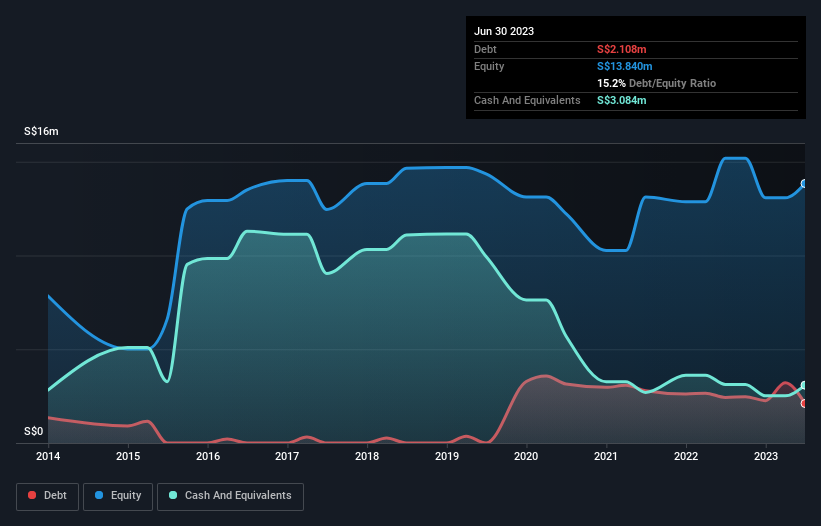Warren Buffett famously said, 'Volatility is far from synonymous with risk.' It's only natural to consider a company's balance sheet when you examine how risky it is, since debt is often involved when a business collapses. As with many other companies KPM Holding Limited (HKG:8027) makes use of debt. But the more important question is: how much risk is that debt creating?
Why Does Debt Bring Risk?
Debt and other liabilities become risky for a business when it cannot easily fulfill those obligations, either with free cash flow or by raising capital at an attractive price. Ultimately, if the company can't fulfill its legal obligations to repay debt, shareholders could walk away with nothing. However, a more common (but still painful) scenario is that it has to raise new equity capital at a low price, thus permanently diluting shareholders. By replacing dilution, though, debt can be an extremely good tool for businesses that need capital to invest in growth at high rates of return. When we think about a company's use of debt, we first look at cash and debt together.
View our latest analysis for KPM Holding
What Is KPM Holding's Net Debt?
You can click the graphic below for the historical numbers, but it shows that KPM Holding had S$2.11m of debt in June 2023, down from S$2.43m, one year before. However, its balance sheet shows it holds S$3.08m in cash, so it actually has S$976.1k net cash.

How Healthy Is KPM Holding's Balance Sheet?
We can see from the most recent balance sheet that KPM Holding had liabilities of S$2.94m falling due within a year, and liabilities of S$2.58m due beyond that. Offsetting these obligations, it had cash of S$3.08m as well as receivables valued at S$11.5m due within 12 months. So it can boast S$9.09m more liquid assets than total liabilities.
This excess liquidity is a great indication that KPM Holding's balance sheet is almost as strong as Fort Knox. With this in mind one could posit that its balance sheet means the company is able to handle some adversity. Succinctly put, KPM Holding boasts net cash, so it's fair to say it does not have a heavy debt load! When analysing debt levels, the balance sheet is the obvious place to start. But you can't view debt in total isolation; since KPM Holding will need earnings to service that debt. So if you're keen to discover more about its earnings, it might be worth checking out this graph of its long term earnings trend.
Over 12 months, KPM Holding reported revenue of S$26m, which is a gain of 19%, although it did not report any earnings before interest and tax. We usually like to see faster growth from unprofitable companies, but each to their own.
So How Risky Is KPM Holding?
Statistically speaking companies that lose money are riskier than those that make money. And we do note that KPM Holding had an earnings before interest and tax (EBIT) loss, over the last year. Indeed, in that time it burnt through S$2.1m of cash and made a loss of S$1.4m. While this does make the company a bit risky, it's important to remember it has net cash of S$976.1k. That means it could keep spending at its current rate for more than two years. Even though its balance sheet seems sufficiently liquid, debt always makes us a little nervous if a company doesn't produce free cash flow regularly. When analysing debt levels, the balance sheet is the obvious place to start. However, not all investment risk resides within the balance sheet - far from it. For instance, we've identified 2 warning signs for KPM Holding that you should be aware of.
If, after all that, you're more interested in a fast growing company with a rock-solid balance sheet, then check out our list of net cash growth stocks without delay.
Valuation is complex, but we're here to simplify it.
Discover if KPM Holding might be undervalued or overvalued with our detailed analysis, featuring fair value estimates, potential risks, dividends, insider trades, and its financial condition.
Access Free AnalysisHave feedback on this article? Concerned about the content? Get in touch with us directly. Alternatively, email editorial-team (at) simplywallst.com.
This article by Simply Wall St is general in nature. We provide commentary based on historical data and analyst forecasts only using an unbiased methodology and our articles are not intended to be financial advice. It does not constitute a recommendation to buy or sell any stock, and does not take account of your objectives, or your financial situation. We aim to bring you long-term focused analysis driven by fundamental data. Note that our analysis may not factor in the latest price-sensitive company announcements or qualitative material. Simply Wall St has no position in any stocks mentioned.
About SEHK:8027
KPM Holding
An investment holding company, engages in the design, fabrication, installation, and maintenance of signage and related products in Singapore and the People’s Republic of China.
Flawless balance sheet and slightly overvalued.
Market Insights
Community Narratives




